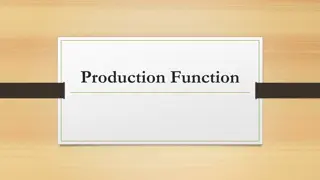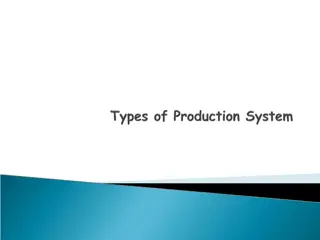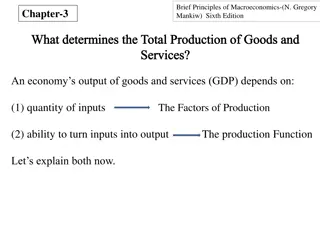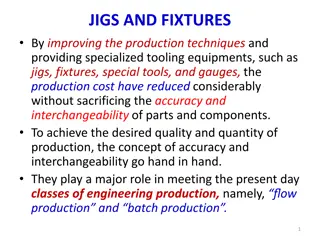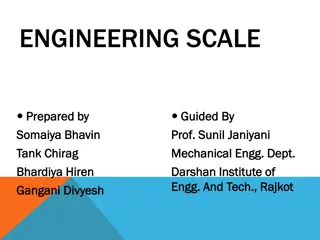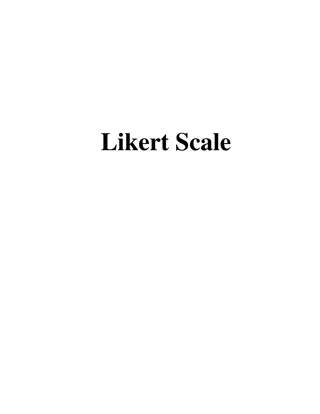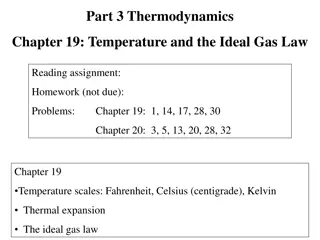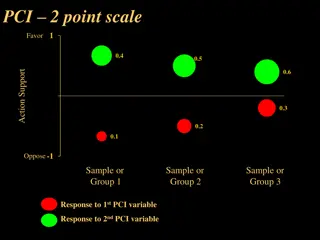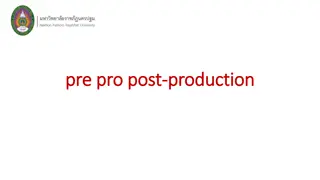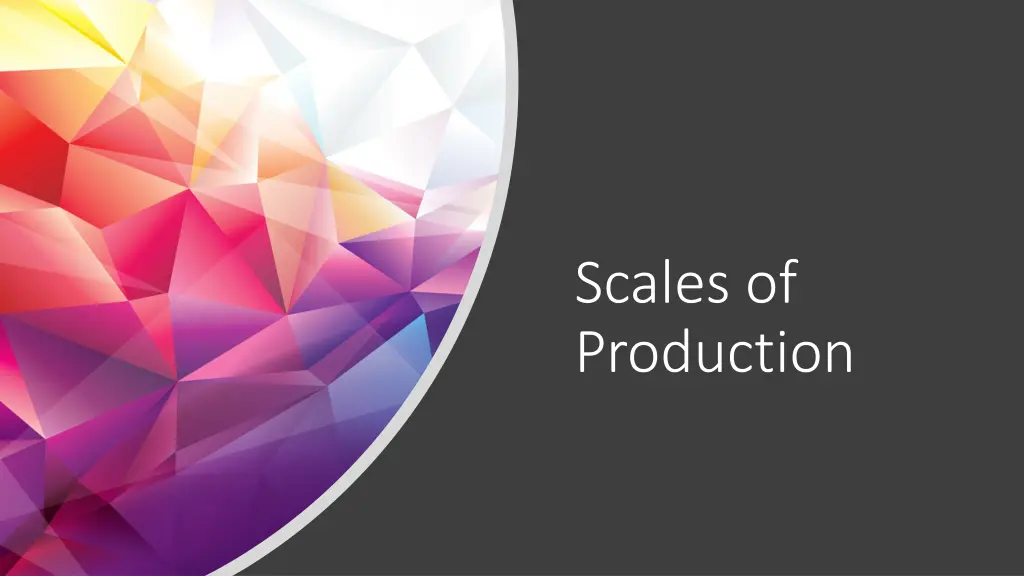
Understanding Scales of Production
Explore the concept of scales of production and the various production volumes in manufacturing processes. Learn about different production techniques such as one-off production, batch production, mass production, and continuous production. Discover how prototypes, 3D printing, and personalization play a role in manufacturing. Understand the factors affecting the volume of production and the impact on production costs and processes.
Download Presentation

Please find below an Image/Link to download the presentation.
The content on the website is provided AS IS for your information and personal use only. It may not be sold, licensed, or shared on other websites without obtaining consent from the author. If you encounter any issues during the download, it is possible that the publisher has removed the file from their server.
You are allowed to download the files provided on this website for personal or commercial use, subject to the condition that they are used lawfully. All files are the property of their respective owners.
The content on the website is provided AS IS for your information and personal use only. It may not be sold, licensed, or shared on other websites without obtaining consent from the author.
E N D
Presentation Transcript
Scales of Production
Scales of production Unit 4 Common specialist technical principles Starter Put the following items in order by the volume manufactured: Many One
Scales of production Unit 4 Common specialist technical principles Production volumes How did you decide where to place the objects? Why do we produce products in different volumes? How were these products made? How do production volumes affect production techniques? Many One
Scales of production Unit 4 Common specialist technical principles Scales of production Some products are manufactured in huge volumes, whereas for other products, only one unit is made There are four different scales of production: One-off production Batch production Mass production Continuous production
Scales of production Unit 4 Common specialist technical principles One-off production A single product or unit is made One-off production is suitable for prototypes and when a product is designed for a client with specific needs Why might one-off production be linked with design for disability? Suggest two other examples of one-off products? Why do one-off products have a high unit cost?
Scales of production Unit 4 Common specialist technical principles Prototypes and 3D printing Prototypes are classified as one-off products and 3D printing is often used to manufacture prototypes What makes 3D printing a suitable process for one-off production?
Scales of production Unit 4 Common specialist technical principles Personalisation and one-off products What is the difference between one-off and personalisation?
Scales of production Unit 4 Common specialist technical principles Batch production More than one unit is produced at a time in a set or batch e.g. confectionary, newspapers or furniture items Patterns, templates or jigs are used to increase efficiency Production lines are flexible and generally have shorter lead times Why are seasonal products suitable for batch production?
Scales of production Unit 4 Common specialist technical principles Jigs, patterns and templates Jigs and patterns can be made or bought in to expedite a certain process They can help to perform repetitive or awkward tasks accurately Jigs can be used in one-off, and batch production How do jigs make production faster and more accurate? How could jigs help reduce waste?
Scales of production Unit 4 Common specialist technical principles CNC machines CNC stands for Computer Numerical Control These are CAD/CAM machines like laser cutters and CNC routers These machines are often used in batch production because they are accurate and efficient but also flexible What makes them so versatile?
Scales of production Unit 4 Common specialist technical principles Mass production Mass produced products are made in large volumes, in factories with a high level of automation and very few, if any, processes completed by hand High set-up costs and low unit costs characterise mass production Give three examples of mass produced products? Why are mass production lines less flexible than those for one-off or batch production?
Scales of production Unit 4 Common specialist technical principles Set-up costs The more automation in a production line, the higher the set-up costs will be Products made using complex industrial machinery will be mass produced Which industrial processes have high set-up costs? How can a manufacturer justify the high set-up costs of mass produced products?
Scales of production Unit 4 Common specialist technical principles Continuous production A continuous production line is run non-stop, 24 hours a day, 7 days a week, manufacturing products to meet a constant demand What types of products would be suitable for continuous production? How labour intensive are continuous production lines? How does this affect unit and set-up costs?
Scales of production Unit 4 Common specialist technical principles Worksheet Task 3 Low unit cost High unit cost High set up cost Low set up cost Minimum flexibility Maximum flexibility Handmade Automation Unskilled workers / operators Skilled workers / operators One-off Batch Mass Continuous





